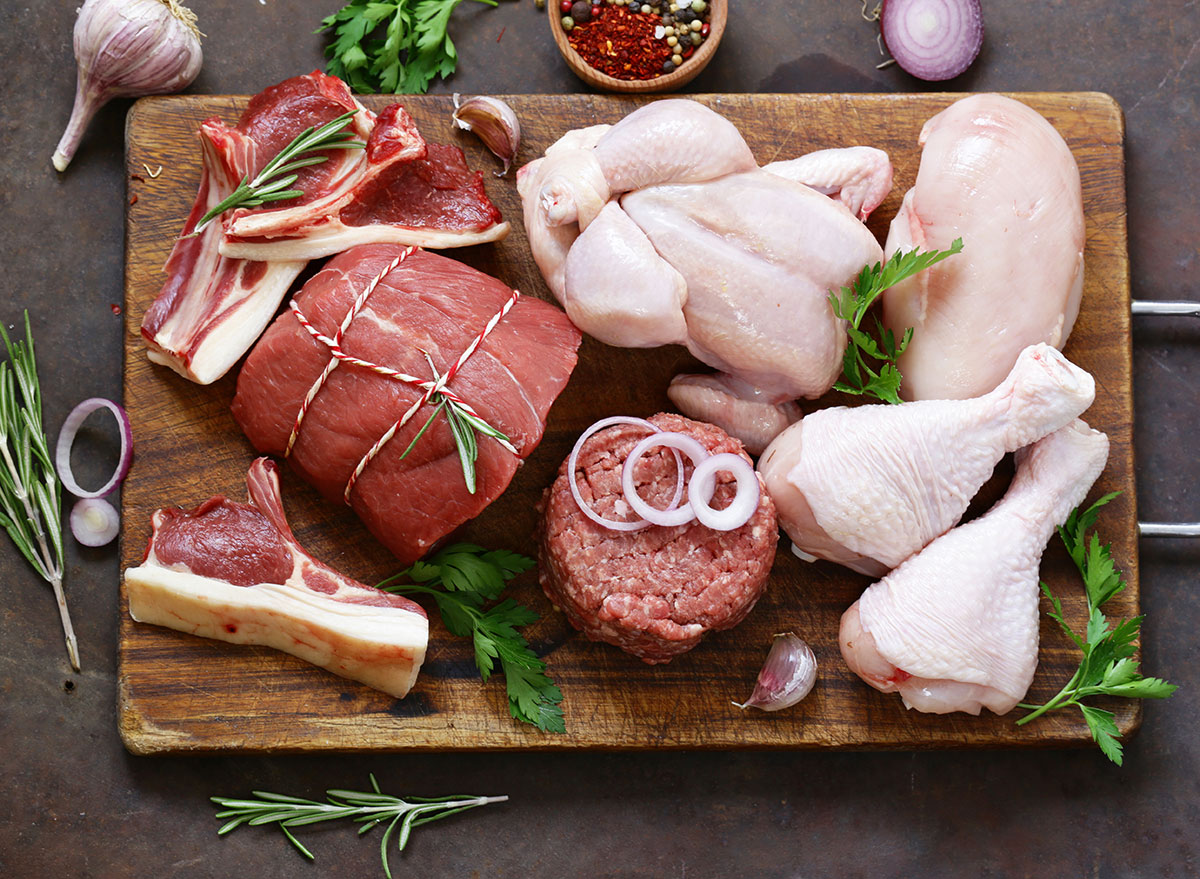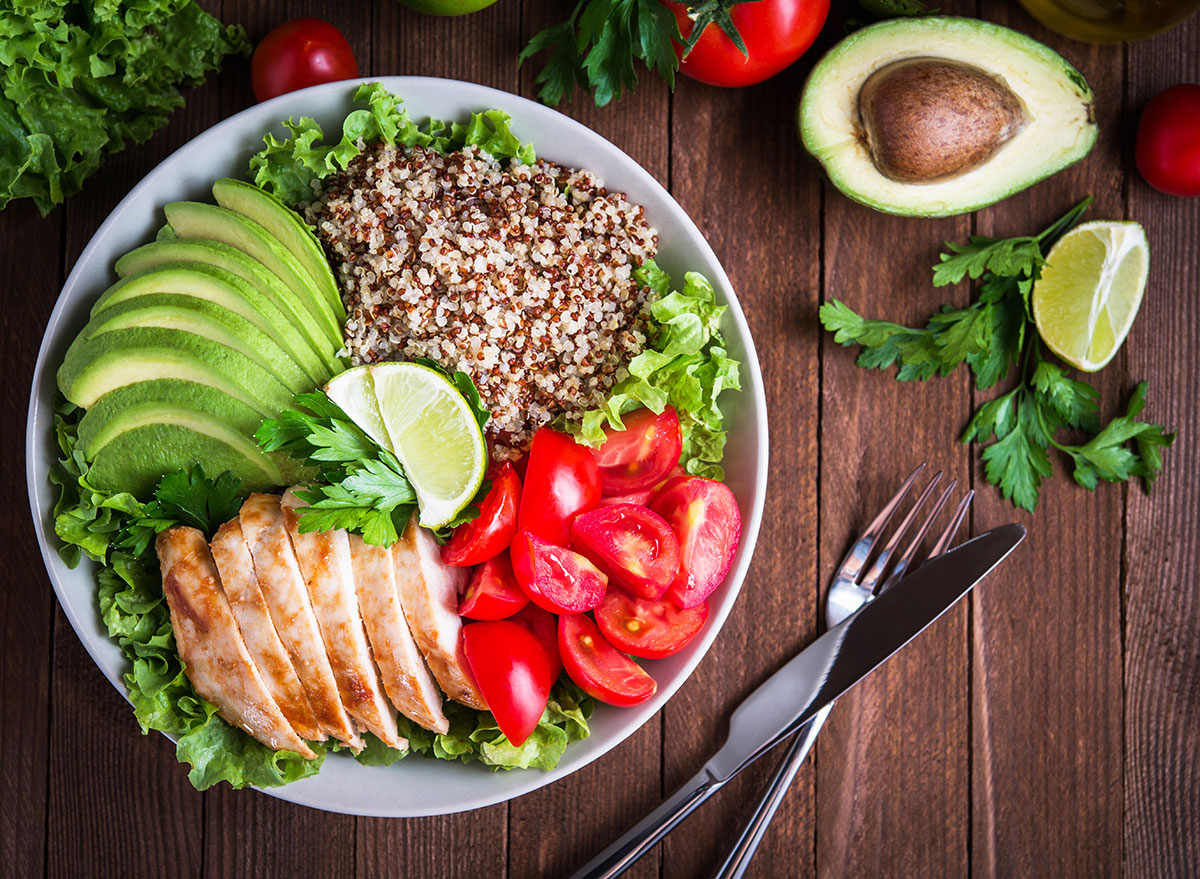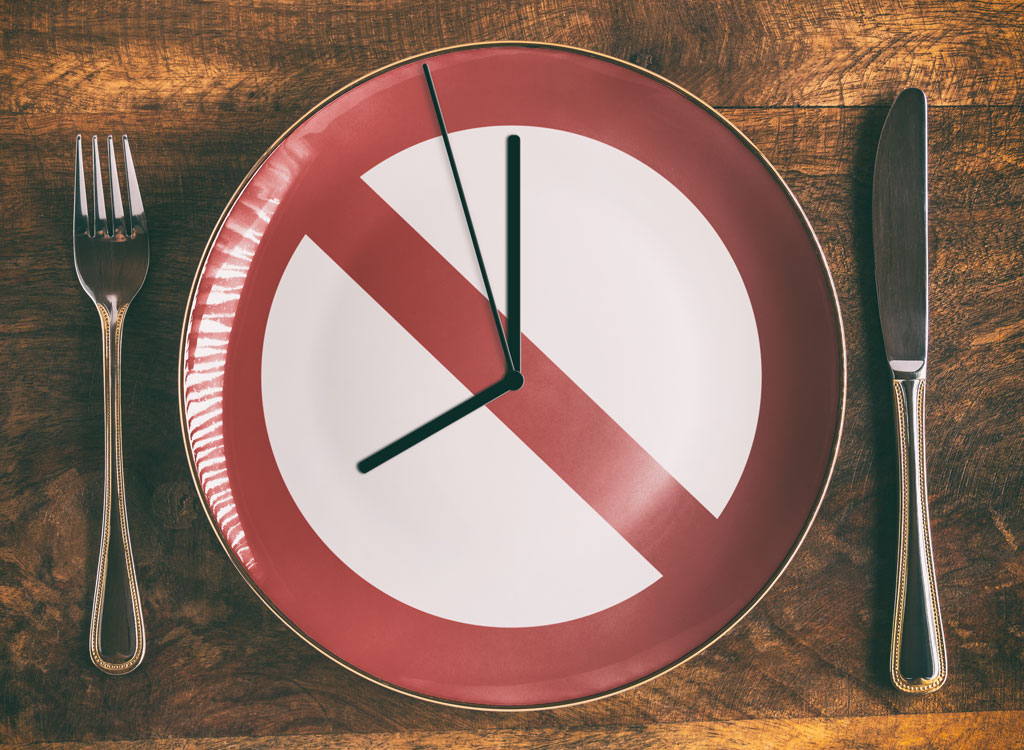6 Tips for Transitioning Off Keto Without Gaining Back The Weight

Although the keto diet has proven to be incredibly efficient for weight loss and offers real health benefits—like reducing blood sugar, insulin levels, and even reducing risk of Alzheimer’s—the keto diet is extreme. It allows for no more than 10% of calories to come from carbs (which comes with its own set of problems) and requires as much as 60% to come from fat. And lately, experts have been questioning whether the keto diet could actually harm your heart and cardiovascular system.
While the keto diet remains popular, it isn’t necessarily a “forever” option (speaking of which, here are 9 signs you really ought to be eating more carbs). This is why some people look for the right advice when thinking about transitioning off of keto. Because by transitioning off of keto, you are at risk for gaining back the weight you lost.
As personal trainer Jamie Hickey explains, “your body has gotten used to using fat as its primary energy source. It takes time to transition back to using carbs as fuel.”
But weight gain after keto isn’t inevitable, experts point out. Read on for their advice on how to start transitioning off keto without regaining lost weight, or worse, gaining more. And for more healthy eating tips, be sure to check out our list of 21 Best Healthy Cooking Hacks of All Time.
Take it slow.

The first piece of advice I give my clients looking to come off keto is to take it slow,” says Hickey. “Start by adding small servings of fruits and starchy vegetables and working your way up incrementally.”
Once you ramp up to American Dietary Guidelines of Dietary Guidelines (45 to 65 percent of total calories), just make sure to stick to whole foods because processed foods could lead to weight gain, not to mention fatigue, bloating, and all these other side effects. Here are 15 Homemade Swaps for the Worst Ultra-Processed Foods.
Make sure to maintain protein intake.

It’s important to remember that keto is nota high protein diet, says Heidi Skolnik, MS, CDN, FACSM. The high levels of fat do keep you satiated, but protein can do that too.
“Maintain or even slightly increase your protein at first,” Skolnik suggests, and don’t be afraid to rely on protein drinks (e.g., protein shakes and protein water) as well. Here’s What Happens To Your Body When You Drink Protein Shakes Every Day.
Stay active.

“Exercise is critical to helping your body re-adapt to using carbs as fuel,” Skolnik says. “And the good news is, with carbs as fuel, you may find those HITT workouts easier.”
Sure, it’s possible to lose tons of weight without exercising, but here’s what can happen if you don’t.
Keep an eye on calories.

“Watch your total calorie intake to avoid eating an excessive amount of calories,” says registered dietitian Marta Ferraz Valles.
There is simply no getting around the fact that calories matter. To lower the number on the scale, you’ve got to take in fewer calories than you’ve been taking in. Conversely, if you increase your calorie consumption, you’ll gain weight. If you need to know how many calories you should be taking in, This Is How Many Calories A Week You Should Eat For Weight Loss.
Make those calories count.

Calorie counting will only get you so far if you’re not paying attention to nutrition, Valles points out.
“Start getting in the habit of filling up half your plate with fruit and non-starchy vegetables,” Valles says. Non-starchy vegetables are low in calories but high in nutritional value.
Valles also recommends choosing healthier sources of carbohydrates than basic bread. white rice, and baked goods. Instead, try “intact whole grains” such as steel-cut oatmeal, and legumes such as beans, lentils, and chickpeas—which are associated with healthier weight and longevity.
Consider intermittent fasting.

“When transitioning off keto, it can help to move into intermittent fasting,” says registered dietitian Alicia Galvin, a resident dietitian for Sovereign Laboratories. Intermittent fasting involves limiting eating only during a 12 to eight-hour period over the course of a day.
“Intermittent fasting has been shown to have weight loss and metabolic benefits, which can help you maintain your weight loss after keto,” says Galvin.








